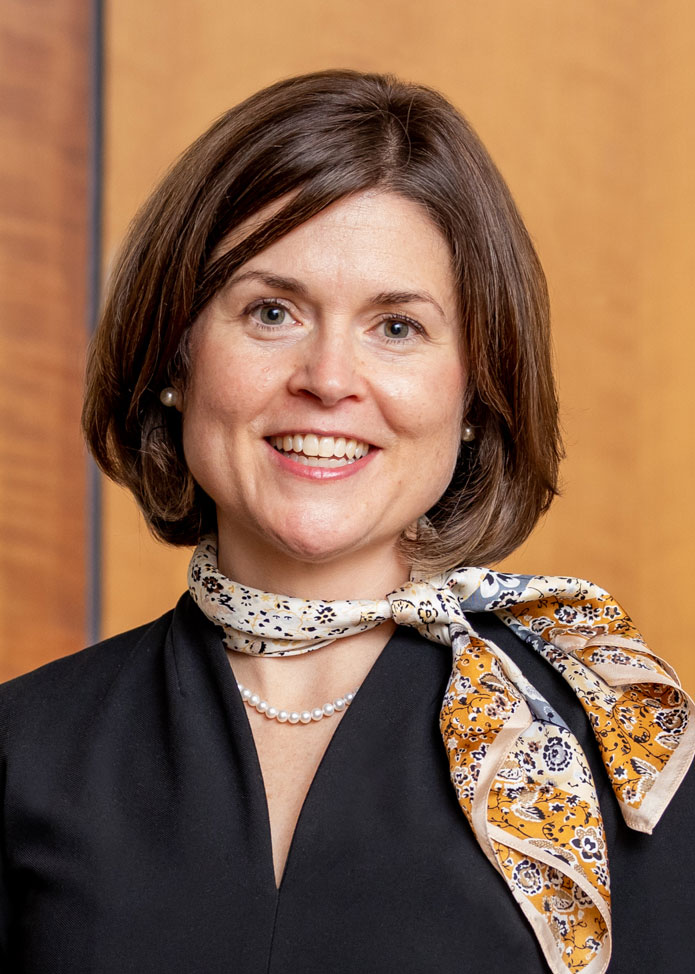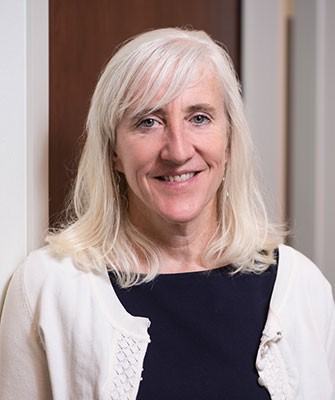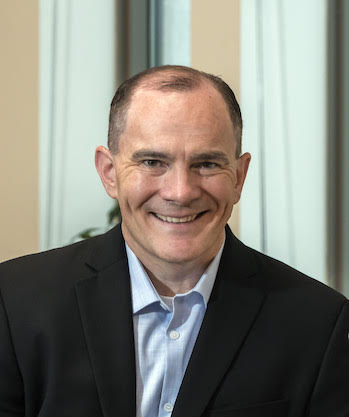
Top 10 ranking comes as no surprise to Connell School of Nursing community
The Connell School of Nursing’s top 10 ranking in the recent U.S. News survey of the nation’s best undergraduate nursing schools is an external acknowledgment of the school’s strength and clear momentum, CSON faculty, staff, and students say.
Based on the peer assessment of nursing deans nationwide, the Connell School placed 10th out of 654 programs—a 12-point improvement from last year and CSON’s highest ranking to date.

Katherine Gregory (Caitlin Cunningham)
Connell School Dean Katherine Gregory, who has led the school since 2021, said CSON’s strong reputation is the result of multiple factors, including excellent faculty and students, a rigorous undergraduate education strengthened by BC’s core curriculum, and connections to Boston’s world-class hospitals and research labs.
"Excellence in undergraduate nursing education requires scientific rigor embedded in the liberal arts,” said Gregory. “It also requires depth and breadth of clinical education and experiences. Boston College and the city of Boston—one of the world's most vibrant and sought-after healthcare ecosystems, with cutting edge research and innovation in clinical care—provide the ideal environment for excellence."
CSON community members say the ranking validates what they have long known—that the school, despite its small size, has the teaching and research prowess to warrant its standing among the nation’s best nursing programs. But it is the student experience above all, they say, that makes the school distinctive.

Colleen Simonelli (Chris Soldt)
“Embedding our nursing ‘training’ in a liberal arts education and being very intentional about the formation of our students is critically important to our success,” said Colleen Simonelli, professor of the practice and associate dean of student services in the Connell School.
“There is an art and a science to nursing, so even the way we lay out the curriculum with both the foundation of science and math and the humanities core in the first year sets the stage for that duality. In addition to the rigorous education, our tradition of making sure that CSON students are deeply a part of the broader BC community and involved in student organizations, international study, intramural athletics, and other extracurricular activities all contribute to their growth and success as students.”

Christopher Lee (Lee Pellegrini)
Barry Family/Goldman Sachs Endowed Professor Christopher S. Lee said the faculty’s commitment to students in and out of the classroom is a central component of the school’s success.
“Being a master teacher in the classroom or clinical setting is half the job in higher education,” said Lee. “Equally important to us at the Connell School of Nursing are the personalized mentoring, coaching, and sponsorship of students that can make a real and enduring difference in both student formation and professional success.”
BC senior Brian Harrington, who leads a first-year student seminar, said he and his fellow nursing students have been the beneficiaries of the faculty’s commitment to its students across all four years, and the mentorship that takes place among fellow students.
“From the first day, I have felt completely supported by faculty and staff, who take a genuine interest in students and provide them with the guidance and assistance they need to succeed,” said Harrington. “CSON is a very caring and intimate program. Having unwavering faculty support, the mentorship of older students, and career-focused faculty advising is rewarding and reflective of the personal touch that distinguishes the school.”
Harrington’s sentiment is shared by fellow students.
“As a first-generation college student and a McNair Scholar, the support I have received from CSON faculty since the first day I stepped on campus is something that I know I would not have found at other schools,” said senior Lesley Carranza Bonilla. “Through teaching, mentoring, and special programs such as international clinical opportunities, the Connell School creates nurses who are excited to join the field, but who also have a realistic and holistic understanding of the health disparities that exist in the world and a desire to address them."
Added senior Emma Goggins, “It is so rewarding to be taught by faculty who are great at what they do and who care so much about their students. I am grateful every day that I chose to study nursing in the Connell School. It is the best decision I have ever made.”
Overall, Duke University was the top-ranked nursing school in the U.S. News survey, followed by the University of Pennsylvania, Emory University, Ohio State University, University of Iowa, University of North Carolina at Chapel Hill, University of Alabama at Birmingham, University of Michigan, and the University of Washington. Boston College was tied for 10th with several schools, including Case Western Reserve and New York University, and retained its place as the top-ranked nursing school in New England and among Jesuit and Catholic schools nationwide.
“The U.S. health care system is deeply flawed, and at Boston College we seek to empower our students to be the change agents we need,” said Simonelli.
“BC’s commitment to educating a diverse student body with a deep sense of community and belonging is key to our success. Most importantly, engaging in reflective practice, and teaching the Jesuit ideals of being attentive, reflective, and loving prepares our students to truly meet their patients where they are and to advocate for them with keen powers of observation and a focus on optimizing health.”
“Our undergraduate students are well positioned for success not only during their time on campus and as newly licensed nurses, but over the trajectory of their career, as a result of the clinical, research, and service-learning opportunities they have as BC nurses,” said Gregory. “Furthermore, they are successful in launching and sustaining themselves within the nursing profession and the demands of the healthcare environment as a result of their liberal arts education. That is the BC difference.”
